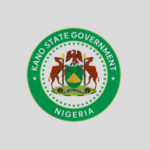In some of my reflections on institutional reforms, I have had reason to critically reflect on grassroots and community-based reforms as catalysts for national development. Community development innovation was first brought to my attention, while researching my doctoral thesis, by the Aboyade-Mabogunje OPTICOM (optimal community) project at Aáwé. This project took the rural localities as the first condition in any reflection about grassroots development.
I have outlined such innovative examples like the Awujale-Mabogunje Ijebu Ode poverty alleviation programme, and the Awujale Chair of Governance at the Olabisi Onabanjo University. No one can fail to have noticed also the Obi of Onitsha and his giant strides at modernizing outdated cultural practices in Onitsha including the outrageous bride-price.
‘Emir’ Sanusi Lamido has been constantly in the news with his views about the transformation of retrogressive cultural and religious practices Northern Nigeria. And when Ooni Ogunwusi became coronated, he came to the throne with a brand of change orientation that challenges the retrogressive power and supremacy tussle that seemed to have taken over the historical sense, perspicacity and wisdom of the Yoruba traditional leaders.
This piece is meant to introduce a different dimension of development innovation by another traditional authority. Not many, outside of the South-West Nigeria, would have heard about Oba Adedokun Omoniyi Abolarin, the Oragun of Oke Ila in the State of Osun, and the fundamental philanthropy model he is bringing into the conversation on development in Nigeria. Oba Abolarin is the founder of the Abolarin Model College in Oke Ila. With more than a hundred students, the Abolarin Model College welcomes those who live at the margin of Nigeria’s society-the children of the poor, the destitute, the disenfranchised, the unlucky and unfortunate, the orphans, and many more. We can rightly characterize the Abolarin College as a hope center. And its founding is all the more significant for what it promises and delivers because its founder is an elite who has decided to commit ‘class suicide’ in turning his elite privileges into a stepping stone for the less privileged.
With the Abolarin Model College and the philanthropy principle behind it, we arrive at a significant enhancement of the subsidiarity principle. I borrow my analysis from the Nobel laureate Amartya Sen, the Indian economist. Sen developed what has been called the capability approach to explain human development in the world and the capacity of individuals to develop the capability to achieve the type of lives they want. Poverty, for instance, is seen by Sen as a fundamental deprivation that limits one’s capability to live such a good life. It takes little reflection therefore to see that Oba Abolarin has intervened critically in undermining deprivation in the lives of these students by putting the education infrastructure in place to improve their quality of life.
Whether we see the relation or not, Oba Abolarin’s innovative philanthropy, within the limit of the subsidiarity principle, is similar to what earned Muhammad Yunus, the Bangladesh social entrepreneur, banker and economist, and his Grameen bank, the Nobel Peace Prize, for creating “social and economic development from below.” By providing a free opportunity to learn in an environment unconstrained by incapacitation, Oba Abolarin is also making a fundamental statement that the enlarged minds of these students can be unlocked to make significant progress in life.
And yet, it is actually the subsidiarity context of Oba Abolarin’s innovative project that constitutes its most significant limitation. And this is where the necessity of reform is also brought to bear on making Oba Abolarin’s philanthropy even more significant in transforming lives, not only within the locality within which the idea was developed, but also in other communities that urgently need such an innovation. I will outline briefly three reform issues that should be thought about to keep pushing the boundaries of the innovative philanthropy that went into the founding of the Abolarin Model College.
The first issue has to do with the larger problem of aligning local government with the urgent need to intervene rigorously and most meaningfully in local governance in ways that can critically re-engineer and scale up local self-help projects. It is commitment to reforming the organizing frameworks of local governance arrangements like this that provides the context within which subsidiarity issues like the Abolarin Model College can ever hope to keep functioning optimally. The second issue, flowing from the first, also concerns the reform of the education system in ways that cascade down to the localities experimenting with innovative ideas, especially in education.
It is not sufficient to celebrate the innovative philanthropy of traditional rulers like Oba Adedokun Abolarin. On the contrary, his example ought to become a national model benchmarked in ways that will not only speak to other reform efforts of many others, but will also key into the institutional reform on a national scale. The Abolarin Model College, for instance, speaks immediately to the responsibility of the State of Osun to benchmark the College and encourage Oba Abolarin with state-approved annual grants. It also speaks to the government’s responsibility to encourage other like-minds and facilitate the streamlining of local self-help into national development.
Prof Olaopa, a retired Federal Permanent Secretary and Professor of Public Administration, National Institute for Policy and Strategic Studies (NIPSS), Kuru, Jos, can be reached via [email protected]

 Join Daily Trust WhatsApp Community For Quick Access To News and Happenings Around You.
Join Daily Trust WhatsApp Community For Quick Access To News and Happenings Around You.


